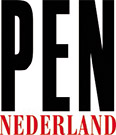Finding freedom in a Cuban cell
Deze bijdrage is onderdeel van een doorlopende serie ooggetuige-verhalen van Cubaanse journalisten die gevangen zijn genomen tijdens een massale klopjacht op dissidenten, die bekend is geworden als de Zwarte Lente van 2003. Al deze journalisten en redacteuren zijn veroordeeld tijdens eendaagse processen, beschuldigd van overtredingen tegen de “integriteit en soevereiniteit van de staat” of van collaboratie met buitenlandse media met als doel het “destabiliseren van de staat.” Zeventien van hen kwamen recent vrij en werden verbannen naar Spanje als deel van een overeenkomst tussen de Katholieke Kerk en de Cubaanse regering; al zitten drie van hen nog steeds gevangen.
By Ricardo González Alfonso/CPJ Guest Blogger
There exists a sensual, amorous liaison, almost felt and seen, that binds poetry, journalism, and freedom together. Examples of such affairs abound, their protagonists transcending short-lived fame and bursting into history and onto the pages of encyclopedias. They are the greats, the masters, those worthy of veneration. But intellectual stature is not always required of the protagonists of such liaisons. Sometimes history, written with a lowercase “h,” concedes us the privilege of participating in those passions of ink and paper, as they say, of flesh and blood. The paths are varied. In fact, paradoxically, prison can lead to freedom.
On March 18, 2003, Cuba’s state security forces committed a crime against tolerance and carried out a countrywide raid. The detentions went on for three days. They arrested 75 members of our forbidden civil society; 26 of us were independent journalists. The so-called “Black Spring” had begun. But the government failed in its attempt to silence voices capable of screaming and singing through prison bars and walls, past guards and terror.
I was sentenced to 20 years in prison for practicing journalism outside the control of the state. Days later I was transferred 330 miles (533 kilometers) from where I was staying, and put into Kilo 8, the Camagüey prison known as “I’ve lost the key.”
In this penitentiary I was placed alone in a minuscule cell. In length, the cell was barely longer than my rickety bed, leaving room only for a hole that clumsily provided sanitation services, and a crestfallen pipe that fancied itself a shower. The width of the cell, also stunted, had symbolic value: It was just as wide as a man with outstretched arms.
Nine of us comrades for the cause lived under these conditions, distributed cell by cell along a small hallway, so that we could hear, but not see, one another. This is why I titled my book of poems, written clandestinely in that prison cell, Men without Faces. Some of my accomplices were my very jailers–naturally, without suspecting it or even imagining how the rigor they imposed facilitated the furtive labor of my poetic creation.
During the first three months we had no electricity, which obliged me to write by day. But since there were so many bars between the guards and ourselves (for example, I passed through 11 padlocked doors to see visitors), the opening and closing of those large, iron doors alerted us to the location of the guards, and gave me time to conceal my verses, prohibited and free. I wrote drafts of my poems on a common-sized sheet of paper, but afterward, I transcribed them with tiny letters on slips of paper of just a few centimeters in size, which I hid in my slippers. Then I would burn the originals, disposing of the ashes in that awkward and sanitary hole.
Our cells were inspected three times a week. When they got to mine I would get up (I was always lying down, no space for anything more), put on my slippers–my secret cache–and leave the cell since the two guards and I wouldn’t all fit.
Later I asked my wife to bring me some very thin sheets of paper along with two packages of envelopes for mailing letters. These clear, cellophane packages were sealed with an adhesive that was easy to unstick and reseal again without revealing they had been opened. In one of the envelopes I hid my poems, written in script a bit larger than the originals, occasionally accessing them to revise one or another of the verses. To fool the guards, I roughly scratched open the other package of envelopes so that my jailers wouldn’t discover the ruse of the false seal. When they searched my cell, they inspected only the envelopes in the torn package, believing the package containing my forbidden verses to be pure. When I finished writing the 45 poems in Men without Faces, I needed to find a method to get them out of the prison without arousing suspicions.
I availed myself of a pack of cigarettes, carefully opening the bottom of the cellophane packaging so that the industrial seal was left intact. I extracted half of the tobacco and inserted the rolls of poem-inscribed paper. Afterward I refilled each cigarette and replaced them from the bottom of the pack. Then, I delicately closed the cellophane. All that remained was the visitation inspection. The last frontier.
That day arrived. During the inspection, my lighter, which had a discrete compartment to put who knows what, was meticulously examined. On finding it empty, the guards relaxed and were less diligent with the rest of the inspection, overlooking the false seal on the cigarettes. During my wife’s visit, I handed her the pack of cigarettes, and, in a whisper, informed her of the poetic content of each cigarette. Later, she circulated Men without Faces on the Internet. My book of poems would be released by publishing houses in Spain, the U.S., and France.
My audacity had its price. I was sent to a punishment cell, also minute, where the bed was a concrete bench and the floor was carpeted in rodent excrement. For 16 days in that cell I went on hunger strike, demanding to be treated just as badly as my friends, not worse. Thanks to the international campaign that my wife launched, I was taken out of the punishment cell.
Sometime thereafter, in need of a surgical intervention, I was admitted to the National Prisoners Hospital at the Combinado del Este prison in Havana. The medical center was less strict, and I managed to write and publish features, articles, a report, some testimonies, and another book of poems: Human Purposes.
They could never silence my voice or those of my comrades for the cause. We had remained faithful in that sensual, amorous liaison, almost felt and seen, that binds poetry, journalism, and freedom together.
(Translated by Karen Phillips)
Lees hier de volledige serie.





